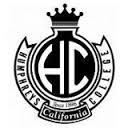What do they do?
Use verbatim methods and equipment to capture, store, retrieve, and transcribe pretrial and trial proceedings or other information. Includes stenocaptioners who operate computerized stenographic captioning equipment to provide captions of live or prerecorded broadcasts for hearing-impaired viewers.
Also known as:
Certified Shorthand Reporter (CSR), Court Monitor, Court Recorder, Court Recording Monitor, Court Reporter, Court Stenographer, Deposition Reporter, Digital Court Reporter, Official Court Reporter, Realtime Court Reporter, Stenographer
-
-5.9%
Change
Ranks #44 in job growth rate30Job Openings
Ranks #21 in net job growth
Looking for colleges that offer a specific major? Use the College Match Tool to find your best-matched schools and discover your estimated Net Price!
- Associate's degree (36%)
- Some college, no degree (34%)
- Bachelor's degree (13%)
- High school diploma equivalent (12%)
- Master's degree (2%)
- Doctorate or Professional Degree (1%)
- Less than high school diploma (1%)
People in this career often have these skills:
- Active Listening - Giving full attention to what other people are saying, taking time to understand the points being made, asking questions as appropriate, and not interrupting at inappropriate times.
- Writing - Communicating effectively in writing as appropriate for the needs of the audience.
People in this career often know a lot about:
- English Language - Knowledge of the structure and content of the English language including the meaning and spelling of words, rules of composition, and grammar.
- Administrative - Knowledge of administrative and office procedures and systems such as word processing, managing files and records, stenography and transcription, designing forms, and workplace terminology.
- Computers and Electronics - Knowledge of circuit boards, processors, chips, electronic equipment, and computer hardware and software, including applications and programming.
- Law and Government - Knowledge of laws, legal codes, court procedures, precedents, government regulations, executive orders, agency rules, and the democratic political process.
- Customer and Personal Service - Knowledge of principles and processes for providing customer and personal services. This includes customer needs assessment, meeting quality standards for services, and evaluation of customer satisfaction.
People in this career often have talent in:
- Oral Comprehension - The ability to listen to and understand information and ideas presented through spoken words and sentences.
- Speech Recognition - The ability to identify and understand the speech of another person.
- Written Expression - The ability to communicate information and ideas in writing so others will understand.
- Written Comprehension - The ability to read and understand information and ideas presented in writing.
- Oral Expression - The ability to communicate information and ideas in speaking so others will understand.
- Near Vision - The ability to see details at close range (within a few feet of the observer).
- Selective Attention - The ability to concentrate on a task over a period of time without being distracted.
People in this career often do these activities:
- Record information from legal proceedings.
- Proofread documents, records, or other files to ensure accuracy.
- Enter information into databases or software programs.
- Provide information to the general public.
- Process forensic or legal evidence in accordance with procedures.
- Maintain the order of legal documents.
- File documents or records.
- Prepare legal documents.
- Type documents.
- Verify accuracy of records.
- Review documents or materials for compliance with policies or regulations.
- Confer with court staff to clarify information.
This page includes data from:

 Occupation statistics: USDOL U.S. Bureau of Labor Statistics Occupational Employment Statistics
Occupation statistics: USDOL U.S. Bureau of Labor Statistics Occupational Employment Statistics





